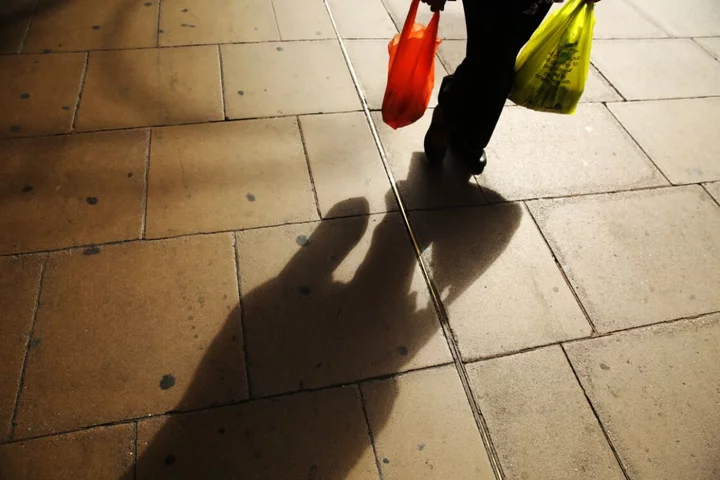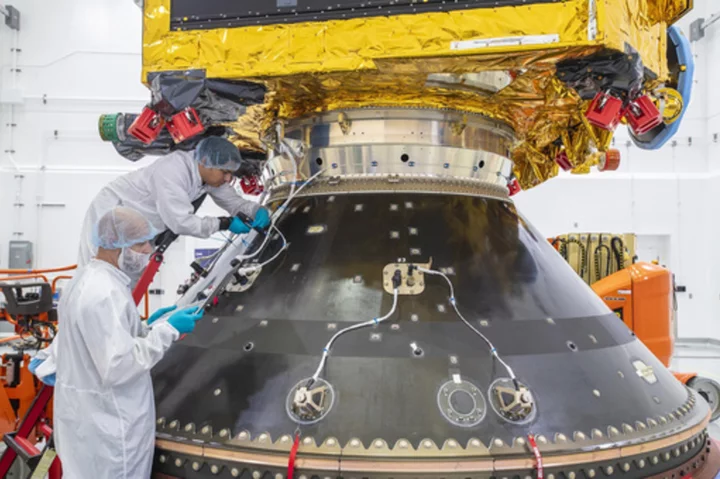Britain’s antitrust watchdog will investigate a two-tier pricing system developing in supermarkets as a result of loyalty programs which it said can confuse shoppers.
Major retailers now principally use loyalty programs for promotional activity, the Competition and Markets Authority said Wednesday, and the practice is expected to grow further.
The regulator will also investigate the price of infant formula after it found that consumers are choosing more expensive branded options, and will update on its findings in mid-2024. It said about 85% of the baby formula market was dominated by two companies.
Danone and Nestle are the two biggest makers of infant formula in the UK. Neither company has provided a comment yet.
Britain’s grocery sector is being monitored closely by the watchdog this year after food prices soared and supermarkets faced accusations of profiteering. It cleared grocers of this claim in July but found that supermarkets weren’t doing enough to allow customers to compare prices.
Read More: Grocers Cleared of Profiteering From High UK Food Prices
Most British supermarkets have some form of loyalty card program in a bid to compete with discounters Aldi and Lidl during the ongoing cost of living crisis. Tesco Plc ramped up promotions through its Clubcard this year while J Sainsbury Plc launched Nectar Prices in April, passing on discounts to customers with the Nectar loyalty card.
Sainsbury CEO Simon Roberts described Nectar Prices as “an absolute game changer” on an earnings call with reporters earlier this month when the supermarket raised its guidance. Shares in Tesco and Sainsbury were little changed in early trading in London on Wednesday.
Sainsbury and Tesco declined to comment.
The British Retail Consortium, which represents most UK retailers, said grocers know they must demonstrate clear value to customers, whether that’s through loyalty discounts or everyday lower prices.
‘Two-Tier Prices’
The CMA report said loyalty programs are likely to lead to a growing prevalence of two-tier prices in stores and could result in a more complicated environment for consumers to compare and choose the best deals.
“Price promotions are only available to people who sign up for loyalty cards,” said Sarah Cardell, chief executive officer of the CMA, which could raise questions about whether the pricing is fair and competitive for all shoppers.
Representatives of Britain’s four largest supermarkets were called in front of UK politicians earlier this year to defend their pricing strategies. However, the CMA later said that retailers’ costs have been rising faster than their revenues.
The regulator found that although branded suppliers have more pricing power than own-label manufacturers, competition is still high as consumers are willing to switch to cheaper brands. Retailers are also incentivized to get the best prices from suppliers in a grocery market considered to be one of the most competitive in the world.
“Taken together, this means that consumers can have confidence that, for most of the product categories we have considered, they are getting competitive prices where they are able to access and choose own-label alternatives,” the regulator said.
Infant formula, baked beans, pet food and mayonnaise have the highest margins, the CMA said of the categories it investigated, while poultry and milk have the lowest. When it comes to infant formula, the CMA found that Aldi is the only retailer to sell an own-label option.
Baby Formula
The cost of feeding a 10-week-old baby can range from £44 ($56) to £89 per month, NGO First Steps Nutrition Trust said in an August report.
“All infant formulas are nutritionally adequate and meet the same minimal UK compositional requirements, and there is no reason for such a wide range in prices,” UNICEF said in August, highlighting the need for the government to tighten regulation on marketing, so parents aren’t made to feel they must buy more expensive milks unnecessarily.
Consumer goods groups like Danone have been largely growing sales through higher prices this year. Its specialized nutrition unit, which includes infant formula and medical nutrition, increased pricing 6.2% in the first three quarters of the year.
--With assistance from Katharine Gemmell.
(Updates with CEO comments in sixth and eighth graphs, context on baby formula from 13th.)









